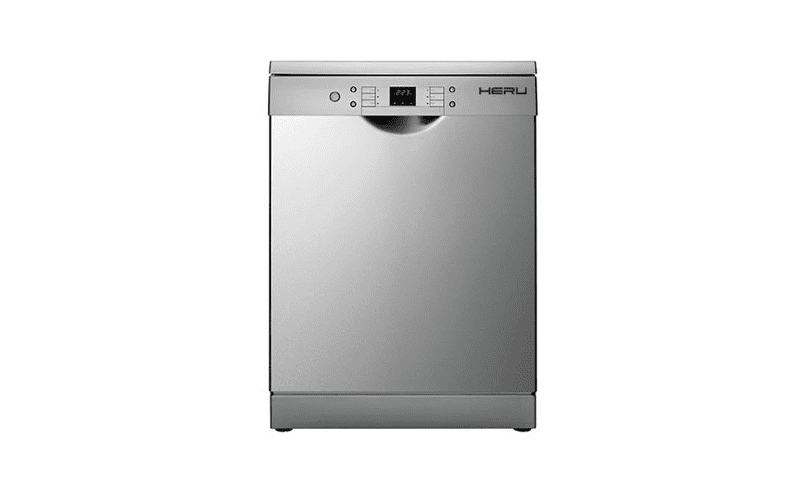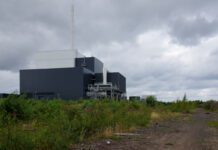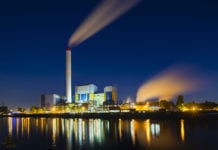Nik Spencer, founder of HERU, the firm behind “the world’s first energy-from-waste hybrid boiler” shares his vision for the technology

When it comes to waste, the problem is in the name and households see rubbish as just that – something that needs to be thrown away. Yet, in order to tackle the stagnating domestic waste problem, there needs to be a fundamental shift in perception towards seeing rubbish as the valuable resource it is. Indeed, if people realised that even a banana skin could help them to fuel their home, then they would be able to see the true value of the waste sitting in their bins and wouldn’t give it away so willingly.
The UK generates a staggering 30 million tonnes of household waste every year (Environment Agency), with only 42% currently being recycled (Environment Agency). Whilst this is a huge improvement since the year 2000, when domestic recycling rates were only around 9%, recently progress seems to have stalled and there are concerns that the UK could miss the 2020 target of diverting 50% of waste from landfill.
With less than half of England’s domestic waste segregated at source, there are a number of possible reasons for the stagnation in household recycling levels. The lack of a consistent national kerbside recycling scheme means there are huge differences between the types of collection systems across the country, with only a limited number of households being offered food and plastic recycling. There is also confusion about what can and can’t be recycled, combined with a lack of information about how waste can be used as a benefit.
All of this comes at a huge cost – both environmentally and financially. Domestic waste collection from every household costs a total of £6 billion each year (Environment Agency). With landfill tax rates rising and the UK likely to reach current landfill limits in the next two years, carrying on as we are is not an option.
At the same time, the UK is facing significant energy challenges as the industry tries to keep prices affordable, whilst providing energy security and meeting decarbonisation targets. With significant energy losses through inefficiencies in the distribution network, the need to replace energy generation capacity and growing household gas and electricity bills, there is huge pressure to take action to secure power for the future.
Energy and waste are two of the biggest challenges facing the UK and more could be done to solve the problem by using one to feed the other. Whilst waste management companies are now very much focused on extracting the maximum value from waste, the same can’t be said of private households.
The UK’s Energy from Waste (EfW) industry has seen significant investment and these commercial plants are now an important part of the UK’s electricity mix. Yet, there hasn’t been much attention paid to how households could use small scale versions of EfW to fuel their own homes and indeed there hasn’t been effective, affordable technology to allow them to do this, until now.

What if EfW technology could be made small enough so that it could fit easily into homes, reducing the need to collect waste in the first place? We have worked with Brunel University to do exactly this. The Home Energy Recovery Unit (HERU) is a world first solution to the domestic waste management and fuel poverty problem. It uses a low temperature pyrolysis, which is the process of heating materials in the absence of oxygen, to convert household waste into a clean sustainable fuel that can be used to heat water for domestic use. HERU converts all household waste, from food to paper and even nappies, effectively providing homes with their own mini power plants eliminating waste, reducing heating bills by up to 15%.
The world’s first hybrid boiler, HERU is also capable of running on gas to ensure, when there is no waste to process, the unit works similarly to any conventional boiler. The self-contained unit is the size of a wheelie bin and costs about the same as an upgrade to double glazing. Connected to the water mains and drainage, HERU runs off a normal 13 amp domestic plug. In winter, it can turn a single black bag of rubbish into 72 litres of hot water a day. In the summer, this figure increases to 122 litres a day.
Although an environmental permit is normally required in order to carry out waste disposal, as the HERU unit would be installed and operated within a domestic property, it has the advantage of not requiring a permit. The HERU has already been awarded support from the Government’s Innovate Energy Game Changer Fund, enabling further development and trials. This means that multiple full scale field evaluations will commence at the end of 2017, with a view to full production in the next two to three years.
What if EfW could be made small enough to fit in the home?”
With more than 2.3 million families living in fuel poverty in England, if adopted widely, the implications of HERU are profound and could provide a solution to some of the UK’s energy challenges, as well as end waste as we know it. In order to see real change, we have to totally rethink our approach to waste management and the development of new technology, like HERU, gives us the opportunity to do this. Giving power to the people to maximise value from their own rubbish in this way could help to achieve zero waste to landfill, eliminate the need for household waste collection and eradicate fuel poverty.







